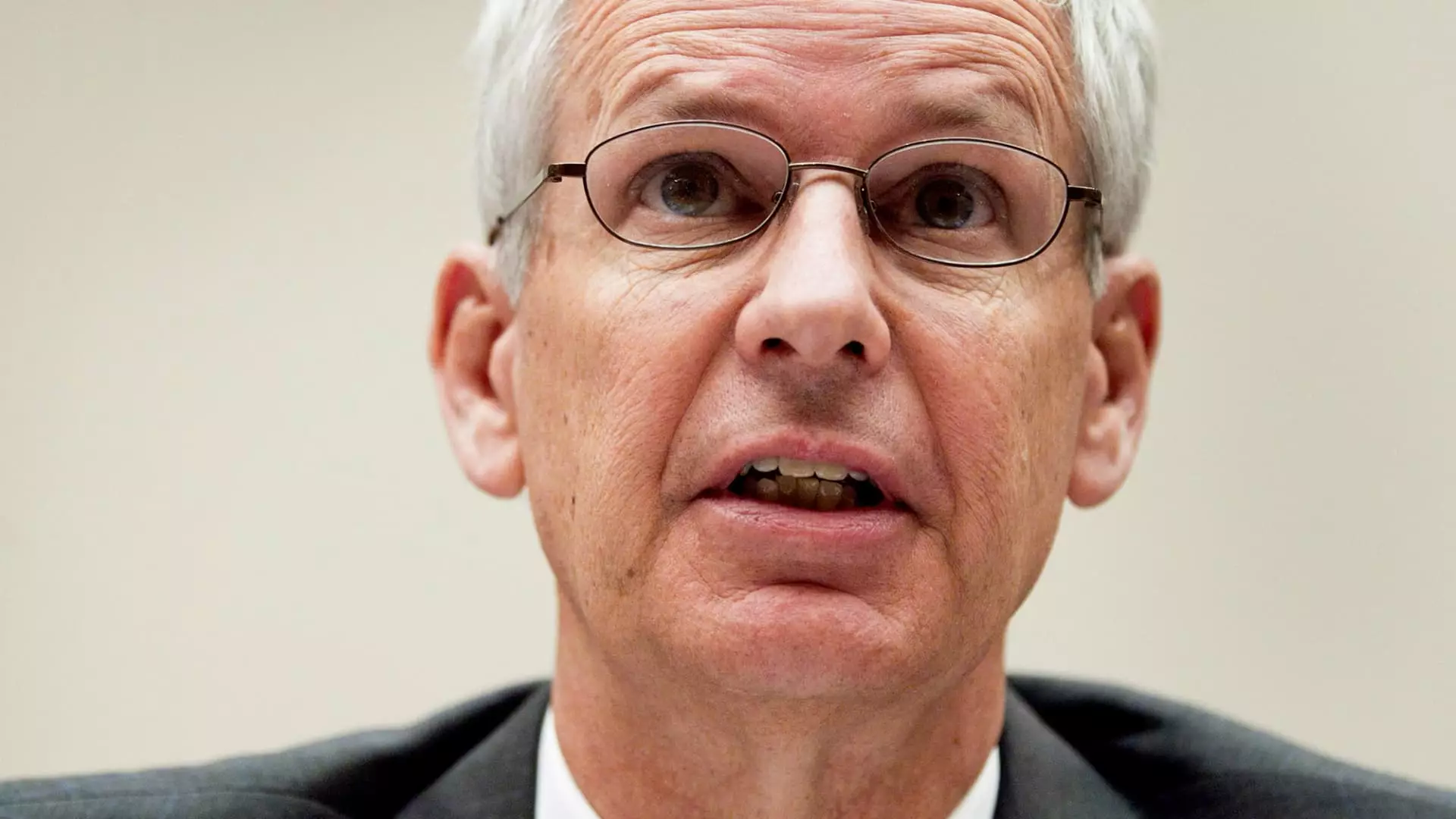Dish Network’s recent strategic denouement serves as a stark reminder of the unpredictability of business paths, reminiscent of the infamous finale of the legendary sitcom “Seinfeld.” This parallel was notably drawn by Dish co-founder Charlie Ergen back in 2011 during a corporate earnings call. When confronted with inquiries concerning Dish’s eclectic business portfolio, Ergen likened the company’s strategy to a “Seinfeld” episode, suggesting a collection of plotlines that may not immediately coalesce but ultimately could lead to a satisfying resolution. However, as Dish’s journey progressed, it became painfully evident that, much like its television counterpart, the expected culmination of its strategy has left many feeling disillusioned and unsatisfied.
An announcement on Monday revealed that EchoStar, Dish’s parent company, sold the pay-TV provider to DirecTV for a symbolic one dollar, coupled with an extensive $9.75 billion debt burden. Following the announcement, EchoStar’s stock prices plummeted over 11%. This financial fallout is a testament to the broader challenges faced by traditional cable providers whose customer bases have been decimated by the meteoric rise of streaming services, high-speed broadband competitors, and evolving consumer preferences.
The figures speak volumes: Dish and DirecTV have collectively shed approximately 63% of their video subscribers since 2016. This alarming statistic reflects not just a shift in consumer behavior towards digital streaming platforms, but also highlights foundational strategic missteps by the companies involved. Over the years, Dish has endeavored to transition into the wireless market, yet these efforts have been fraught with difficulty. Analysts have pointed out that while Dish sought to position itself as a formidable nationwide wireless carrier, its existing pay-TV model struggled with its enduring subscriber losses. Consequently, the company found itself experiencing a divergence of focus that muddied its strategic direction.
EchoStar CEO Hamid Akhavan succinctly noted in a CNBC interview that “the content distribution industry has been on the decline.” This decline is further exacerbated by Dish’s eviscerated value, which has drastically diminished since discussions about a potential merger with DirecTV in 2014, when both companies held significant market valuations. Today, EchoStar’s decision to offload Dish and the associated debt appears more like a desperate retreat from a sinking ship rather than a well-calibrated move in strategic realignment.
The motivation behind EchoStar’s decision to transfer the weight of Dish’s operations seems twofold: to manage the heavy burden of $2 billion in imminent debt payments and to reposition itself towards more lucrative endeavors. In 2019, Dish acquired Boost Mobile from T-Mobile for $1.4 billion, attempting to solidify its foothold in the wireless domain. However, despite this acquisition, the quest for capital to support both wireless ambitions and sustain the legacy of its pay-TV division proved overwhelming and, ultimately, unattainable.
Akhavan candidly revealed, “We couldn’t feed [the wireless] business properly,” alluding to the challenges of juggling multiple strategic directions concurrently. This inability to streamline efforts can be categorized as a significant management distraction that diluted focus and clarity.
Reflecting upon this tumultuous journey brings to mind the underwhelming conclusion of “Seinfeld,” which concluded with a multitude of unresolved plotlines and dissatisfying character arcs. Dish Network’s trajectory reveals a similar fate: a blend of unfulfilled promises, miscalculations, and changing market demands converging towards a lackluster outcome. The journey began with vibrant hopes of innovation and diversification but diminished into an ending that resonates with disappointment.
While the narrative offers a potent lesson about the necessity of adaptability in the face of rapid change in the television and telecommunication landscape, it also emphasizes the pitfalls of overreaching ambitions without a solid foundational strategy. As the curtains close on this chapter for Dish, it serves as a stark reminder of the swift and unforgiving nature of the marketplace, akin to the critical reception that followed the series finale of “Seinfeld.”

